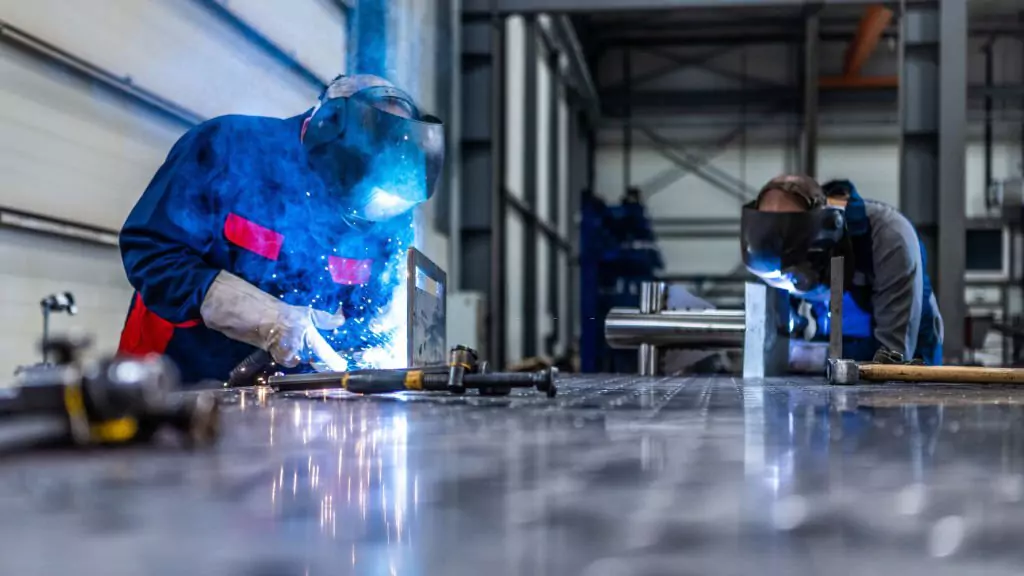Introduction
The welding industry is a crucial part of the manufacturing and construction sectors. Welding is the process of joining two or more metal parts by melting and fusing them together. It is used in a wide range of applications, from building bridges and skyscrapers to manufacturing cars and airplanes. Starting a welding business can be a lucrative venture, especially if you have the skills and experience to provide high-quality welding services. In this article, we will discuss the key steps involved in starting a welding business and the importance of doing so.

Understanding the Welding Industry
The welding industry is diverse, with many different types of welding processes and applications. Some of the most common welding processes include MIG welding, TIG welding, stick welding, and flux-cored welding. Each process has its own advantages and disadvantages, and the choice of process depends on the specific application. Welding is used in a wide range of industries, including construction, manufacturing, automotive, and aerospace. Some of the key players in the industry include Lincoln Electric, Miller Electric, ESAB, and Fronius.
Developing a Business Plan for Your Welding Business
Before starting a welding business, it is important to develop a comprehensive business plan. This plan should include a detailed analysis of your target market, your services and pricing, and your financial plan. You should also conduct market research to identify potential competitors and determine the demand for your services. Your financial plan should include projections for revenue and expenses, as well as a plan for financing your business.
Choosing the Right Location for Your Welding Business
Choosing the right location for your welding business is crucial to its success. Factors to consider when selecting a location include zoning and licensing requirements, accessibility and visibility, and proximity to your target market. You should also consider the availability of utilities such as electricity and water, as well as the cost of rent or purchase.
Acquiring the Necessary Equipment and Supplies
To start a welding business, you will need to acquire the necessary equipment and supplies. This includes welding machines, welding helmets, welding gloves, welding rods, and other consumables. You should also source materials and supplies from reliable suppliers to ensure the quality of your work. Budgeting for equipment and supplies is also important, as these can be significant expenses.
Hiring Skilled Welders and Staff
Hiring skilled welders and staff is crucial to the success of your welding business. You should identify the necessary skills and qualifications for your employees, and recruit and hire individuals who meet these requirements. Training and development is also important to ensure that your employees are up-to-date with the latest welding techniques and technologies.
Setting Competitive Pricing for Your Services
Setting competitive pricing for your services is important to attract and retain customers. You should understand market rates and calculate your costs and profit margins to determine your pricing strategy. Offering discounts and promotions can also help to attract new customers and retain existing ones.
Marketing Your Welding Business to Potential Clients
Marketing your welding business is crucial to attracting new customers and building your brand. You should create a brand identity that reflects your values and services, and develop a marketing strategy that targets your ideal customers. Utilizing digital marketing channels such as social media and email marketing can also be effective in reaching potential clients.
Building Strong Relationships with Suppliers and Customers
Building strong relationships with suppliers and customers is important to the success of your welding business. Maintaining good communication with your suppliers can help to ensure timely delivery of materials and supplies. Providing excellent customer service can also help to build loyalty and attract new customers. Building partnerships with suppliers can also help to ensure a reliable supply chain.
Managing Finances and Budgeting for Growth
Managing finances and budgeting for growth is crucial to the long-term success of your welding business. You should track expenses and revenue to ensure that you are operating within your budget, and budget for growth and expansion as your business grows. Seeking financing options such as loans or grants can also help to fund your business.
Staying Up-to-Date with Industry Trends and Technology
Staying up-to-date with industry trends and technology is important to remain competitive in the welding industry. Attending industry events and conferences can help you stay informed about the latest developments in welding technology and techniques. Investing in new technology and equipment can also help you provide high-quality services to your customers.
Conclusion
Starting a welding business can be a lucrative venture, but it requires careful planning and execution. Understanding the welding industry, developing a comprehensive business plan, choosing the right location, acquiring the necessary equipment and supplies, hiring skilled welders and staff, setting competitive pricing, marketing your business, building strong relationships with suppliers and customers, managing finances, and staying up-to-date with industry trends and technology are all crucial steps in starting and growing a successful welding business. With the right skills, experience, and dedication, you can start a welding business that provides high-quality services and meets the needs of your customers.